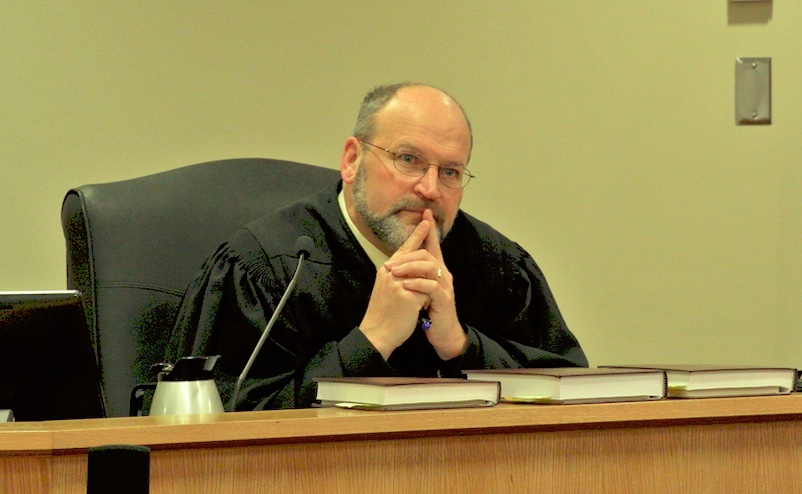NH School Funding Challenge Tests Legislators, Courts

Inescapable realities about New Hampshire: Live Free or Die is the best state motto; we have better maple syrup than Vermont; and we may never stop fighting about the right way to pay for public education.
Everything about school funding is up for grabs this year, with new proposals coming out of the State House, a lawsuit heading to the state Supreme Court, and an open gubernatorial race putting free-market reforms in the spotlight.
“This is a great opportunity for us to have these conversations,” said Sarah Scott with Americans for Prosperity.

Scott and AFP hosted a forum last week at Throwback Brewery in North Hampton with state Reps. Glenn Cordelli (R-Tuftonboro) and Dan Maguire (R-Epsom) to educate people about the realities of the biggest tax bill in the state.
The problem is front and center for legislators this session, who are working on different proposals to address education spending without raising taxes. But whether they do that is up in the air.
Cordelli, vice chair of the House Education Committee, said there’s no guarantee conservative lawmakers can get meaningful changes since House membership is split so evenly. Republicans control the House with a slight majority, which can evaporate depending on the time of day. If the weather is bad, or several members are sick, or votes happen after lunch, the majority can flip.
“Every day, it’s a gamble which party is in charge depending on who gets to the State House,” Coredelli said.
But the local level is where taxpayers bear the largest education funding burden, Scott said. “Most towns spend between two-thirds and three-quarters of their taxes on education.”
And they could end up paying more, thanks to the recent court decision in the ConVal funding lawsuit. Judge David Ruoff ordered the state’s adequacy grant of $4,100 per pupil raised to at least $7,300. The ConVal ruling is causing more problems than it will solve, Maguire said.
“ConVal is the logical conclusion of 30 years of bad rulings,” Maguire said, who sits on the House Finance Committee. “At some point, we have to get off this track of unreality.”
The Supreme Court’s Claremont decision from the 1990s paved the way for adequacy grants and the statewide property tax. Currently, the state sends about one billion dollars a year to local schools in the form of adequacy grants and other aid programs.
Under the current system, what each town gets per pupil varies. The base grant of $4,100 goes up for students determined to have greater need, and for students in communities that are considered property poor. However, Maguire said if Ruoff’s ruling stands, all of the extra funding for students and communities in need would go away.
Ruoff’s ConVal ruling would seem to add at least $500 million to education spending on top of what is already being paid. But Maguire said it would result in all of the funding being replaced by a flat $7,300 per pupil grant, leaving poor communities scrambling again.
Lawmakers are searching for a fix while the state appeals Ruoff’s ruling to the state Supreme Court. But state spending on education represents less than a third of total spending. The rest comes from homeowners through local property taxes, and those taxpayers are already shelling out more for less.
Department of Education data released this month show the new statewide average operating cost per student has reached a record-setting $20,323 for the 2022-2023 school year. That’s a 4.8 percent increase over last year’s $19,400 and close to a 90 percent increase on 2000’s $11,000 per pupil cost.
This year’s new average — well above the national $14,295 — puts the Granite State on track to spend $3.8 billion in total on education for the 2022-2023 school year.
Over the same period, student enrollment numbers in the Granite State cratered. The student population dropped from 207,684 in 2002 to 165,095 in 2023. That’s a decrease of 42,589 public school students, or about a 20.5 percent decline during the past 21 years.
Coredelli sees an opportunity to deliver education in charter schools and the Education Freedom Account system with better results and lower costs.
“At the end of the day, the free market is the only way to make changes to education,” Cordelli said.
About 7,000 students are enrolled in New Hampshire’s charter schools. Those tuition-free public schools receive state funding of up to $9,000 per pupil and no local tax revenue. Instead, the schools are operated as non-profits and raise donations to cover expenses beyond the state grants.
The EFA program awards grants of around $5,000 per pupil to qualifying families, who are then able to put that money toward any education choice: public, private, or home school. EFA enrollment went up 20 percent this year to 4,211 while costing taxpayers about $22 million in total.









